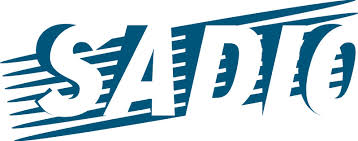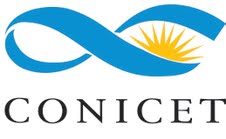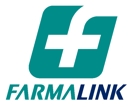Simposio Argentino de Informática Industrial
3rd Argentine Symposium on Industrial Informatics
http://www.43jaiio.org.ar/SII
SII 2014: Call for Papers
43JAIIO - 43rd Argentine Conference on Informatics
3rd September, 2014
Universidad de Palermo, Buenos Aires, Argentina
www.43jaiio.org.ar
Introduction
The Argentine Symposium of Industrial Informatics (SII) is an open forum for researchers, practitioners and students that use and develop computer systems for industrial applications, both in academic and professional environments.
The main objective of the symposium is fostering the interaction and exchange of experiences, ideas and results of the professional and research activities of its participants in the area of Industrial Informatics, through technical sessions and discussion panels.
The Argentine Symposium of Industrial Informatics SII 2014 will be held as part of the 43rd Argentine Conference on Informatics (43rd JAIIO), in September 2014 in Buenos Aires City, Argentina.
Topics of Interest
Works submitted to SII should report relevant research results and industrial experiences in the following areas and related disciplines:
- Decision Support Systems
- Production Control and Monitoring
- Automation and Industrial Robotics
- Supply Chain Modeling
- Information Systems (ERP, CRM, DRM, MRP, SCEM, etc.) and Industrial Platforms
- Computer Integrated Manufacturing Systems (CIM)
- Software and Systems Architectures in Industrial Applications
- Real Time and Transactional Systems in industry
- Industrial Information Networks
- Process Planning, Supervision, Control and Optimization
- Computational Simulation of Processes
- Quality Management and Control
- Productivity Improvement in Industrial Environments
- Logistics and Supply Chain Management
- Supply Chain Planning, Control and Optimization
- Performance Measurement and Benchmarking
- Modeling Based on Software Agents
- Cloud Computing in Industrial Applications
- Business-to-Business (B2B) Information Systems
- Traceability and Event Management
- Interoperability and Systems Integration
- RFID and EPC
- Collaborative Systems in Industry
- Artificial Intelligence in Industrial Applications
- Sustainability, Green Management, Green Production
- Lean Manufacturing
- Innovation Engineering and Management
- Industrial applications of Geographic Information Systems (GIS)
- Real Time Optimization
- Enterprise-Wide Optimization
- Optimization Under Uncertainty
Important Dates
Deadline for paper submission: April 30, 2014
Notification of acceptance/rejection: June 16, 2014
Deadline for “camera-ready” submissions: June 30, 2014
Registration of at least one author for each accepted paper: June 30, 2014
Paper Submission
Authors are invited to submit papers according to the LNCS (Lecture
Notes in Computer Science) format. Author guidelines can be
downloaded from:
http://www.springer.de/comp/lncs/authors.html
Papers can be written in English, Spanish or Portuguese, should not exceed 12 pages, including tables, figures and references, and must be submitted in PDF format.
All the papers will be carefully reviewed by members of the Program Committee, considering their originality, contribution, technical quality and clarity.
The works submitted must have not been previously published, nor be under review in another conference, symposium or journal.
At least one of the authors of each accepted manuscript must register to the conference before the deadline for camera ready submissions in order to include the work in the symposium.
All the symposia at 43 JAIIO use SADIO's conference management system to handle submissions. To upload your contribution you first need to register and sign in. If you have any problems, check the detailed instructions about registration and submission.
Special Issue
Selected manuscripts of SII 2014 will be considered for publication in:
Iberoamerican Journal of Industrial Engineering (IJIE): http://periodicos.incubadora.ufsc.br/index.php/IJIE/index
Revista “Ingeniería Industrial” http://www.ici.ubiobio.cl/revista/
Presentations:
All contributions of SII 2014 will be orally presented. Oral (Power Point) presentations are 15 minutes each, followed by a 5 minute questions and answers session.
Chairmen
María Analía Rodríguez (IDTQ-PLAPIQUI, Córdoba, Argentina)
Aníbal Manuel Blanco (PLAPIQUI, Bahía Blanca, Argentina)
Contact Information
For questions regarding the symposium please contact: sii@43jaiio.org.ar.
Program Committee
Alasino, Noelia (IDTQ, Córdoba, Argentina)
Andreatta, Alfonsina (IDTQ, CONICET-UNC; UTN FRSFco)
Ballejos, Luciana (UTN FRSF, Santa Fe, Argentina)
Basualdo, Marta (CIFASIS, Rosario, Argentina)
Cafaro, Diego (INTEC, Santa Fe, Argentina)
Caliusco, Maria Laura (CONICET, UTN FRSF)
Castilho Gomes, Marta (IST, Lisboa, Portugal)
Castro, Pedro (INETI, Lisboa, Portugal)
Chiotti, Omar (INGAR, Santa Fe, Argentina)
Corsano, Gabriela (INGAR, Santa Fe, Argentina)
Díaz, María Soledad (PLAPIQUI, Bahía Blanca, Argentina)
Fernandez, Erica (INGAR, Santa Fe, Argentina)
Figueroa, José Luis (DIEC-UNS, Bahía Blanca, Argentina)
Francesconi, Javier (INGAR, Santa Fe, Argentina)
Gonnet, Silvio (INGAR, Santa Fe, Argentina)
Heluane, Humberto (UNT, Tucumán, Argentina)
Henning, Gabriela (INTEC, Santa Fe, Argentina)
Lima, Ricardo (LNEG, Lisboa, Portugal)
Marchetta, Martín Gonzalo (UNCuyo, Mendoza, Argentina)
Marchetti, Pablo (INTEC, Santa Fe, Argentina)
Marcovecchio, Marian (INGAR, Santa Fe, Argentina)
Mele, Fernando Daniel (UNT, Tucumán, Argentina)
Méndez, Carlos (INTEC, Santa Fe, Argentina)
Montagna, Marcelo (INGAR, Santa Fe, Argentina)
Mussatti, Miguel (INGAR, Santa Fe, Argentina)
Novas, Juan Matías (CIEM, Córdoba, Argentina)
Paez de la Torre, Bernardo (Cartocor, Paraná, Argentina)
Salomone, Enrique (INGAR, Santa Fe, Argentina)
Scilipoti, José (IDTQ, CONICET-UNC, Córdoba)
Tymoschuk, Ana Rosa (UTN-FRSF, Santa Fe, Argentina)
Vecchietti, Aldo (INGAR, Santa Fe, Argentina)
Villarreal, Pablo (UTN-FRSF, Santa Fe, Argentina)
Expositores:
Dr. Carlos Raspanti, PROFERTIL S.A
Dr. Alberto Bandoni, PLAPIQUI (UNS-CONICET)
Título:
La Informática en la Operación de Plantas de Proceso de Gran Escala: Control Avanzado (APC) y Optimización en Tiempo Real (RTO) para una planta de amoníaco
Resumen:
Se presenta el marco teórico, el desarrollo y la implementación del sistema informático de Control Avanzado de Procesos (APC) y de Optimización en Tiempo Real (RTO) en la planta de NH3 del complejo industrial de NH3-Urea, que la empresa PROFERTIL S.A. tiene en el Polo Petroquímico de Bahía Blanca. El proyecto se llevó a cabo en etapas en colaboración entre PLAPIQUI (UNS-CONICET) y la empresa ASPEN Tech., con la participación de profesionales de PROFERTIL S.A. entre los años 2004 y 2010. El APC consiste en un controlador predictivo de múltiples entradas y múltiples salidas (MIMO). Su predicción se basa en una etapa previa de captura y posterior identificación de la respuesta dinámica y ganancia de las variables de proceso a ser controladas (CV’s), por variación o salto escalón de variables manipuladas (MV’s). La identificación se complementa con la relación entre las variables controladas y las variables de perturbación (FF’s) carentes de control. A continuación se elabora una estrategia de control, la cual establece el vínculo entre dichas variables asignando además funciones de optimización local a cada MV. Por último, se determina la región factible de operación a través del establecimiento de los límites operativos en las CV’s y MV’s. Algunas de las CV’s reciben un valor óptimo o set point remoto del optimizador global o RTO. El alto grado de desempeño de este tipo de controladores se basa en su capacidad de predicción de las CV’s y calidad multivariable. El RTO requiere de la simulación en estado estacionario de los diferentes sectores de planta: desulfuración y reformado, conversión de CO, MDEA, metanación, lazo de síntesis de NH3, recuperación de NH3 e H2, circuito de refrigeración con NH3 y sistema de vapor. Bajo un enfoque Orientado a Ecuaciones (EO), se resuelven simultáneamente los modelos matemáticos de seis reactores catalíticos, absorción reactiva de CO2 y regeneración, separadores, intercambiadores de calor, turbinas de vapor y compresores, entre otros equipos. Cada dos horas aproximadamente, el modelo lee un conjunto de datos de planta, ajusta constantes inciertas y calcula los valores óptimos de un grupo reducido de variables, que maximizan una función objetivo económica y actúan como set-points remotos del sistema de control avanzado. En cada ciclo de optimización, el sistema APC se encarga de implementar los óptimos calculados en la planta real. El RTO se encuentra en servicio en la en la planta industrial desde fines de 2010, cumpliendo un ciclo cada aproximadamente 2 horas.
Oradores Invitados:
Dr. Carlos Raspanti
PROFERTIL S.A
Dr. Alberto Bandoni
PLAPIQUI (UNS-CONICET)
Iván Rafael Santelices Malfanti
Universidad del BIO-BIO, Chile
















